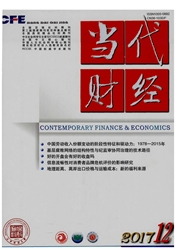

 中文摘要:
中文摘要:
预算软约束是地方政府债务膨胀的主要原因,而土地要素和信贷资源构成预算软约束的资源基础。基于审计结果公告,对地方政府债务特征进行研究,可得出三点结论:(1)地方政府债务总体规模可控,但财政资金的流动性堪忧。(2)地方政府债务表现出强烈的异质性特征。高收入地区债务的绝对量大,负债集中在市、县两级政府;中低收入地区债务的相对规模高,负债集中在省、市两级政府。(3)各地负债的资源基础存在差异。高收入地区银行贷款的绝对量大,中低收入地区对土地出让、财政转移支付的依赖性较强。因此,解决问题的关键在于加快要素市场发育、改革举债机制和理顺财税关系。
 英文摘要:
英文摘要:
Soft budget constraint is considered the main reason for the rapid expansion of local government debts, while land element and credit resources constitute the resource basis of the soft budget constraints. Based on the announcement of audit findings, this paper studies the characteristics of local government debts, which leads to the following conclusions: (1) the whole scale of local government debts is under control, while the liquidity of financial funds should be attended; (2) local government debts show significant heterogeneity. The amount of debts is larger in high-income areas, which was mainly concentrated on the levels of municipal and county governments; the debt scale in low-and-middle-income areas is relatively higher, concentrating on the levels of provincial and munici- pal governments; (3) the resource basis of debts is different from place to place. The absolute amount of bank loans in high-income areas is bigger, while the lower-and-middle-income areas rely more on land transfer and the transfer payment from the exchequer. Therefore, the key solution to this issue is to speed up the factor market growth, reform the borrowing mechanism and rationalize the relation- ship between the finance and taxes.
 同期刊论文项目
同期刊论文项目
 同项目期刊论文
同项目期刊论文
 期刊信息
期刊信息
